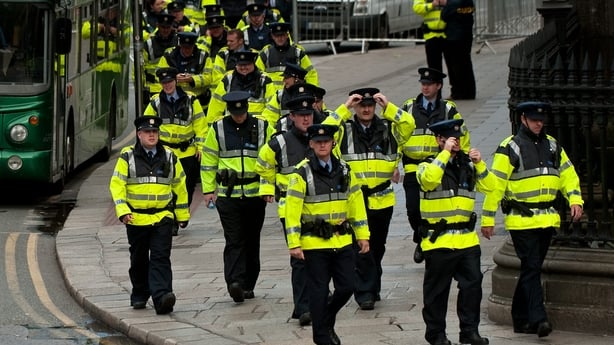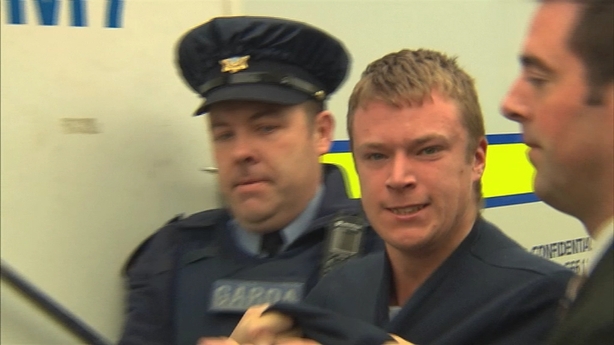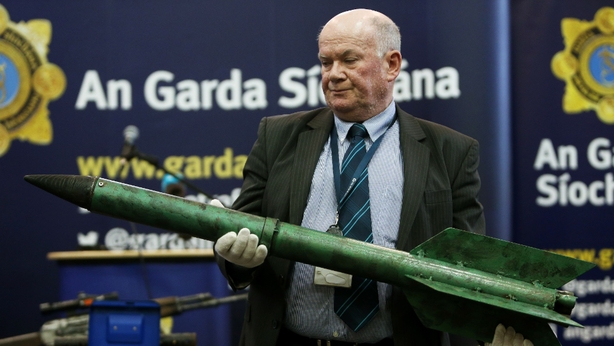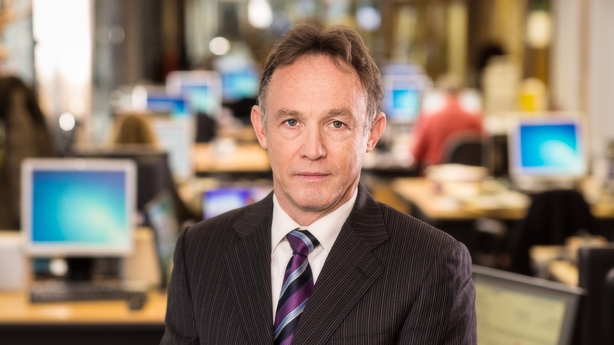The fact that crime is set to become one of the key election issues is nothing new.
What is new, however, are the complaints about the types of crime that politicians can expect to face on the doorsteps.
By Paul Reynolds, RTÉ Crime Correspondent
Gang-related murders and communities ravaged by drug abuse were issues that, in the past, had to be dealt with by those seeking election to the Dáil.
The 1996 murder of journalist Veronica Guerin led to historic legislative changes and the establishment of the Criminal Assets Bureau.
But those measures were not sufficient to keep the then Fine Gael/Labour/Democratic Left coalition in government.
Fianna Fáil took power in 1997 with the help of a "tough on crime" platform.
If the statements by its current justice spokesperson criticising the Government's record on crime are anything to go by, it will be hoping to at least emulate that success.
The party, along with others, has been consistently critical of the Government's management of the justice portfolio.
The principal election issue involving crime this time around will not be drugs or gang-related violence but rural crime.
In spite of the fact that CSO statistics show that crime in general – and burglaries in particular – are far more prevalent in the cities, there is still a very real fear of crime in rural Ireland.
That fear has been acknowledged by the Garda Commissioner. But it still has to be addressed to the satisfaction of those affected and their political representatives.
And the fear remains strong despite ongoing Government announcements of additional garda recruits, extra garda resources and more aggressive policing operations.

So the debate about rural crime – and fear of it – is nothing new.
But it has been accentuated by a level of violence not seen before. It is often associated with robberies and burglaries at homes, farms and businesses.
What people are most afraid of has been encapsulated in the face and the roars of Thomas Flynn as he was led away to jail.

Flynn was one of seven gang members who terrorised Mark and Emma Corcoran and their children in their home in Killenaule, Co Tipperary in November 2013 before leaving with just €1,300.
The jailing of that gang last October coincided with a series of public meetings on rural crime all over the country.
These broadened the debate to include the closure of over 130 garda stations, the shortage of gardaí, particularly in rural areas, and the activities of dissident republicans, especially in the border counties.
The shooting dead of two gardaí in Co Louth – Detective Garda Adrian Donohoe and Garda Tony Golden – served to underline the fear of criminal gangs with subversive connections.

To many law-abiding citizens, these gangs appear to operate with impunity and have no respect for human life.
Sinn Féin has condemned these murders and called on dissident groups to disband.
It will, however, face tough questions on the campaign trail over its connections to republicans convicted of criminal offences here and its continued support for at least one of them.
There is general agreement among all parties, even Fine Gael and Labour, that An Garda Síochána has for years been under-resourced in manpower and equipment.
The Government has already recommenced garda recruitment and promised new high-powered vehicles, modern stations and state-of-the-art computer systems.
But the reality is that much of the election debate could alternate between a mudslinging match over whose record on crime is worst and a bidding war to see who can dole out the most garda goodies.
By Paul Reynolds, RTÉ Crime Correspondent


